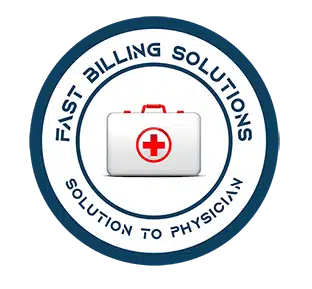
Psychiatrists play a crucial role in mental health care, providing invaluable support to individuals dealing with a spectrum of mental health conditions. Amidst their dedicated service, the intricacies of Psychiatrist Medical Billing form a critical aspect of sustaining mental health practices.
In Billings, MT, the mental health community benefits from the expertise of Bill Stutz, a dedicated psychiatrist known for his exceptional medical practice. His commitment to patient well-being is reflected not only in the clinical care he provides but also in the meticulous psychiatrist medical billing processes at his practice. As a prominent figure in Billings, MT psychiatrist billings, Dr. Stutz ensures that every aspect of the billing cycle aligns with the high standards he upholds in his medical practice. With a reputation for excellence, Bill Stutz Psychiatrist continues to make a positive impact on mental health in the Billings community through compassionate care and efficient billing practices.
In this insightful exploration, Fast Billing Solutions unravels the complexities, nuances, and essential elements of Psychiatrist Medical Billing, shedding light on the processes that optimize reimbursement and ensure financial vitality.
Understanding the Landscape:
Unique Nature of Psychiatry Services: Psychiatric care involves a diverse range of services, from diagnostic assessments and psychotherapy to medication management. Each service requires meticulous coding and documentation to accurately represent the care provided.
Importance of Accurate Diagnosis Coding: Accurate diagnosis coding is paramount in psychiatry billing. Psychiatric conditions often necessitate precise coding, including the use of DSM-5 codes, to reflect the complexity of mental health diagnoses and ensure proper reimbursement.
Key Components in Psychiatrist Medical Billing:
Evaluation and Management (E/M) Services: Psychiatrists frequently provide E/M services, including initial evaluations and follow-up visits. Proper documentation of the complexity and intensity of these services is crucial for accurate coding and billing.
Psychotherapy Services: Psychotherapy is a cornerstone of psychiatric care. Billing for psychotherapy services involves understanding the various modalities (individual, group, family) and selecting the appropriate CPT codes based on session duration and focus.
Medication Management: For psychiatrists prescribing medications, billing involves a nuanced approach. Psychiatric medication management codes, along with proper documentation of medication reviews and adjustments, ensure comprehensive reimbursement.
Navigating Insurance Challenges:
Insurance Verification and Authorization: Psychiatrists need to verify patient insurance coverage and obtain authorizations for specific services. Thorough insurance verification processes help prevent claim denials and facilitate smoother reimbursement.
Handling Denied Claims and Appeals: Given the potential complexities of mental health billing, psychiatrists may encounter claim denials. Effective denial management and appeals processes are essential to rectify errors and maximize reimbursement.
Fast Billing Solutions: Elevating Psychiatrist Practices:
Expertise in Psychiatric Coding: Fast Billing Solutions brings specialized expertise in psychiatric coding, understanding the nuances of DSM-5 coding and ensuring accurate representation of mental health diagnoses.
Efficient Claims Processing: Our advanced billing technology streamlines claims processing, reducing the risk of errors and delays. Psychiatrists can focus on patient care, confident that their billing needs are handled with precision.
Click here to Get Free Demo of your Practice!Conclusion: Fostering Financial Health in Mental Health Practices:
Psychiatrist Medical Billing is a dynamic process requiring a deep understanding of mental health nuances, accurate coding, and efficient claims processing. Fast Billing Solutions serves as a trusted ally, supporting psychiatrists in navigating the billing landscape and fostering financial health for sustainable mental health practices.

1. What are the advantages of mental health billing?
Mental health billing plays a crucial role in ensuring proper reimbursement for mental health services. Advantages include improved financial health for mental health practices, streamlined revenue cycles, accurate documentation of services provided, and compliance with insurance requirements, ultimately allowing mental health professionals to focus on patient care.
2. How much do psychiatrists bill hourly?
Psychiatrists’ hourly billing rates can vary widely based on factors such as location, experience, and the specific services provided. On average, hourly rates for psychiatrists range from $100 to $300 or more, with variations based on the complexity of the services rendered.
3. What is a modifier in mental health billing?
Modifiers in mental health billing are two-digit codes appended to a Current Procedural Terminology (CPT) code to provide additional information about the service. For example, modifier 25 indicates a significant, separately identifiable evaluation and management service provided on the same day as another service.
4. Can a psychiatrist bill 99205 for the first visit then 90792?
Yes, psychiatrists can use CPT code 99205 for the initial comprehensive evaluation and management (E/M) service. Additionally, they can use CPT code 90792 for psychiatric diagnostic evaluations, often conducted during the initial visit to establish a diagnosis and treatment plan.
5. Can psychiatrists bill 90839?
Yes, psychiatrists can bill CPT code 90839 for psychotherapy services provided for a crisis, typically lasting 60 minutes.
6. What CPT codes can a psychiatrist bill?
Psychiatrists can bill various CPT codes depending on the services provided. Common codes include E/M codes (e.g., 99201-99215), psychotherapy codes (e.g., 90832-90839), medication management codes (e.g., 90863), and crisis intervention codes (e.g., 90839, 90840).
7. What is the billing code for a psychiatrist in 2023?
The billing codes for psychiatrists in 2023 remain consistent with previous years, including E/M codes, psychotherapy codes, and other relevant codes based on the services rendered. Code updates are typically released annually by the American Medical Association.
8. Can a psychiatrist bill 90837?
Yes, psychiatrists can bill CPT code 90837 for psychotherapy services provided for a standard 53- to 60-minute session.
9. How is mental health billing different from medical billing?
Mental health billing differs from medical billing in the types of services provided and the associated codes. Mental health billing often includes psychotherapy, crisis intervention, and medication management services, utilizing specific CPT codes tailored to psychiatric care. Medical billing, on the other hand, encompasses a broader range of healthcare services beyond mental health, using diverse codes for procedures, surgeries, and diagnostic tests. The documentation requirements and nuances in billing rules also vary between mental health and medical billing.
